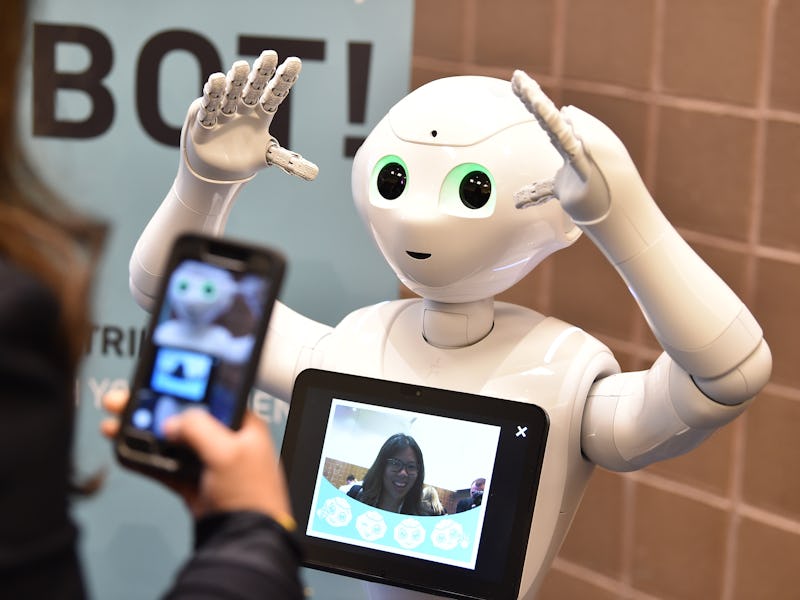Stephen Hawking's Warning on Robot Automation is More Relevant than Ever

Stephen Hawking was concerned with how the rise in robot automation could drive income inequality. The British physicist, who died Wednesday in his Cambridge home at the age of 76, warned that the combination of artificial intelligence and employment shifts could lead to a dramatic shift in power in both the short and long term.
In a Reddit Ask Me Anything session in October 2015, a user asked about “the possibility of technological unemployment” in the face of robot automation, comparing it to the 19th century Luddite movement, whose members feared — often correctly — that the Industrial Revolution would cost them their jobs. In response, Hawking said:
If machines produce everything we need, the outcome will depend on how things are distributed. Everyone can enjoy a life of luxurious leisure if the machine-produced wealth is shared, or most people can end up miserably poor if the machine-owners successfully lobby against wealth redistribution. So far, the trend seems to be toward the second option, with technology driving ever-increasing inequality.
Hawking’s Reddit comment, the last one posted via his account “Prof-Stephen-Hawking,” was shared on a number of subreddits Wednesday morning, including the socialism subreddit, where it received nearly 7,000 upvotes.
It wasn’t the only time that Hawking warned about these coming changes. In a December 2016 column in The Guardian, he said “the automation of factories has already decimated jobs in traditional manufacturing, and the rise of artificial intelligence is likely to extend this job destruction deep into the middle classes, with only the most caring, creative or supervisory roles remaining.”
It’s a sentiment shared by others in the tech world. Brad Wardell, CEO of software developer Stardock, published a blog in September 2016 that warned the accumulation of wealth through automation could represent a catastrophic shift in power.
Figures like Virgin’s Richard Branson and Y Combinator’s Sam Altman have called for a basic income to alleviate the worst changes from these shifts. A PriceWaterhouseCoopers report found in March 2017 that 38 percent of U.S. jobs could be lost to automation over the coming 13 years.
Beyond mass unemployment, Hawking repeatedly warned that the A.I. underpinning large-scale robot automation could itself be a catastrophic risk. Much like Tesla CEO Elon Musk’s warnings that A.I. could pose “a fundamental risk to the existence of human civilization,” Hawking expressed fears that “A.I. may replace humans altogether” in a November 2017 interview.
“Artificial intelligence could be a real danger in the not too distant future,” Hawking told John Oliver in an episode of Last Week Tonight aired in June 2014. “It could design improvements to itself and outsmart us all.”